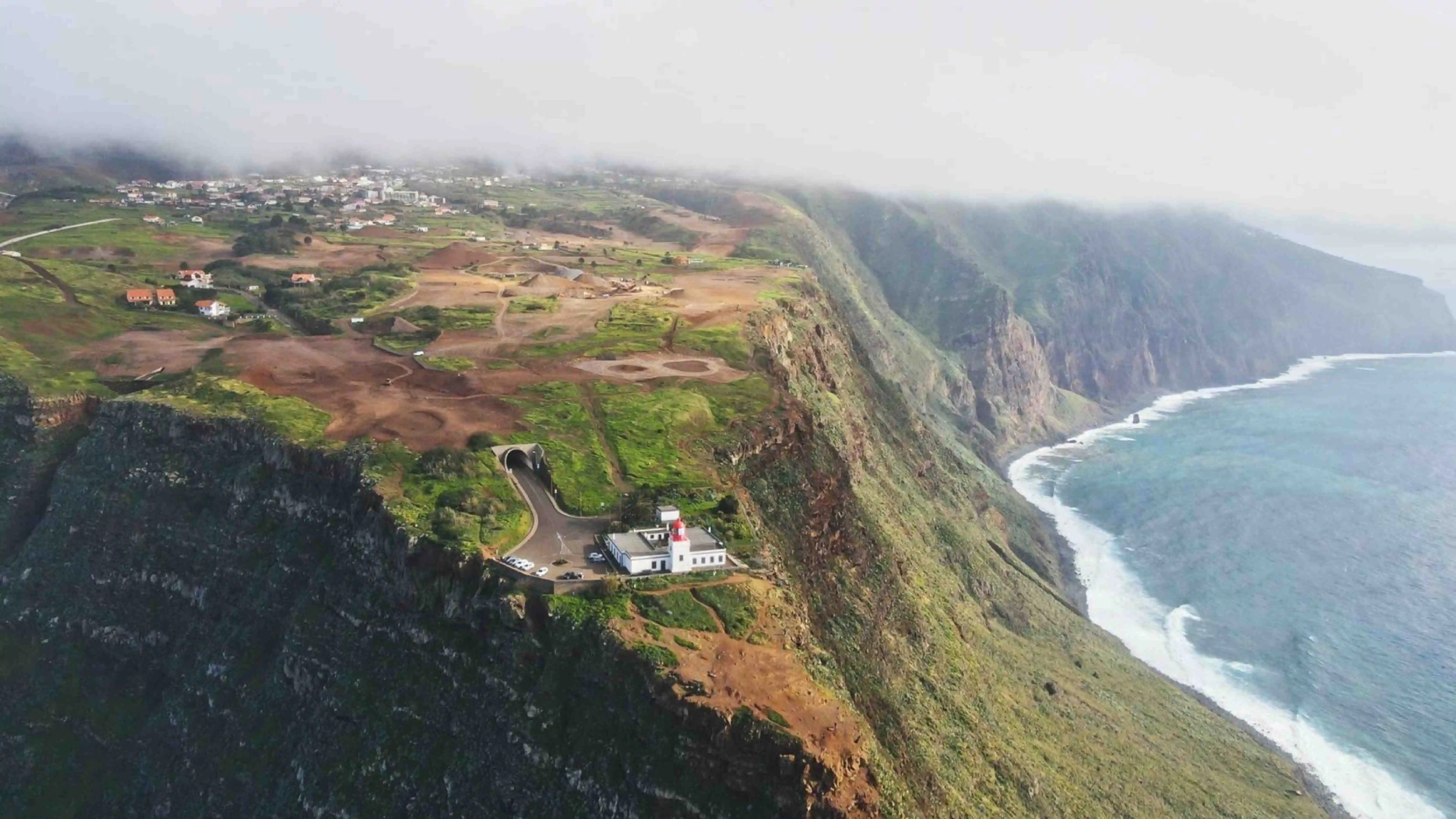 A few days ago, the legendary Sir Nick Faldo visited the stunning Ponta do Pargo golf course development in Madeira, and it’s safe to say this project is already making waves. Designed by the six-time Major winner and his renowned Faldo Design team, Ponta do Pargo is shaping up to be a game-changer for golf on the island.
A few days ago, the legendary Sir Nick Faldo visited the stunning Ponta do Pargo golf course development in Madeira, and it’s safe to say this project is already making waves. Designed by the six-time Major winner and his renowned Faldo Design team, Ponta do Pargo is shaping up to be a game-changer for golf on the island.
Set on the westernmost tip of Madeira, this upcoming par-72 course promises jaw-dropping views and an unforgettable golfing experience. Picture yourself playing on greens perched dramatically close to cliffs, with the 16th green overlooking the iconic Farol do Ponta do Pargo lighthouse. Faldo described the course as “incredibly dramatic” and a “must-play” for golf fans.
Ponta do Pargo: All in One Place
This is Madeira’s first new course in over 20 years, and the excitement is palpable. Scheduled for completion in 2026, the project goes beyond the course itself. The development will also feature a driving range, a nine-hole pitch-and-putt course, a clubhouse, and a luxury hotel. It’s clear that Ponta do Pargo will be a destination in its own right.

Madeira, recently crowned the World’s Best Emerging Golf Destination, is quickly becoming a hotspot for golfers, and there’s no better way to explore its magic than with Tee Times Golf Agency. With over three decades of experience, Tee Times specialises in creating unforgettable golf holidays. From helping you discover Madeira’s existing courses to preparing for the incredible Ponta do Pargo, we’ve got you covered.

So why wait? Plan your next golf getaway to Madeira and see why the island is the talk of the golfing world. With Tee Times’s expertise, you only need to focus on your swing and soaking in the spectacular views.
The finalisation of the Ponta do Pargo golf course will mark a transformative moment for Madeira’s tourism. Positioned to attract golfers and visitors from around the globe, this project will solidify Madeira as a premier golf destination and further enhance the island’s reputation for offering unparalleled experiences.
Photos by: Faldo Design.

 We’re delighted to announce our participation in the PGA Show 2025, happening from January 21-24 in Orlando. This iconic event is the perfect stage to unveil our latest offerings, connect with golf fans, and showcase the best golf tourism offers.
We’re delighted to announce our participation in the PGA Show 2025, happening from January 21-24 in Orlando. This iconic event is the perfect stage to unveil our latest offerings, connect with golf fans, and showcase the best golf tourism offers.

 The 2025
The 2025 